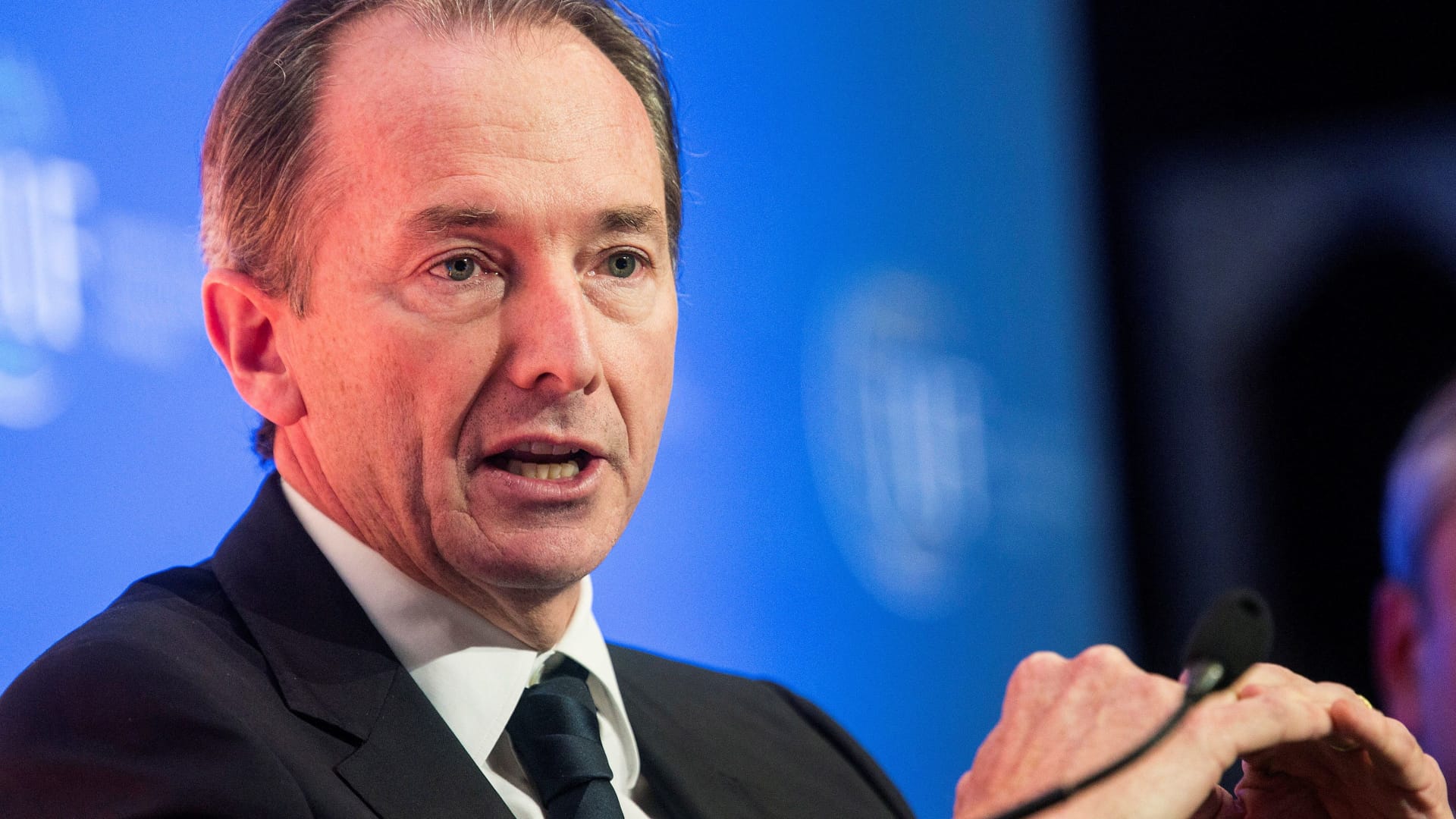[ad_1]
Morgan Stanley Chairman and Chief Executive James Gorman speaks during the Institute of International Finance Annual Meeting in Washington, October 10, 2014.
Joshua Roberts | Reuters
Morgan Stanley CEO James Gorman said he’s more confident on the markets than the rest of Wall Street, seeing a return of deal-making as soon as the Federal Reserve stops hiking interest rates.
“I’m highly confident that when the Fed pauses, deal activity and underwriting activity will go up. I would bet the year on that, in fact,” Gorman said on an earnings call Tuesday. “We’re not of the view that we’re heading into a dark period. Whatever negativity in the world is out there. That’s not our house view.”
His comments came as his New York-based firm reported fourth-quarter earnings that topped Wall Street expectations, boosted by the bank’s record wealth management revenue and growth at its trading business. The company’s shares traded up 6% on Tuesday following the results.
Despite the overall stronger-than-expected results, Morgan Stanley’s investment banking business suffered a big slowdown amid a collapse in IPOs and debt and equity issuance.
Revenue from investment banking came to $1.25 billion in the fourth quarter, down 49% from a year ago. The bank said the drop was due to the substantial decline in global equity underwriting volumes and lower completed M&A transactions.
Gorman said deal activity will get a boost once financial conditions start to loosen. He said the Fed’s next move will likely be a smaller 0.25 percentage point rate hike, followed by a pause. He added he’s not sure if the central bank will cut rates this year.
“I’m a little more confident about the medium-term outlook for the markets,” Gorman said. “We want to make sure we’re positioned for growth. This thing will turn. M&A underwriting will come back, I’m positive of it. So we want to be well-positioned for it.”
The Fed has raised its benchmark interest rate to a targeted range between 4.25% and 4.5%, the highest level in 15 years, marking the most aggressive policy moves since the early 1980s.
“There’s a lot of money sitting around waiting to be put to work. Our job is to be the flow of capital between those who haven’t and those who need it. So I’m pretty confident actually about the outlook,” Gorman said.
[ad_2]
Image and article originally from www.cnbc.com. Read the original article here.

